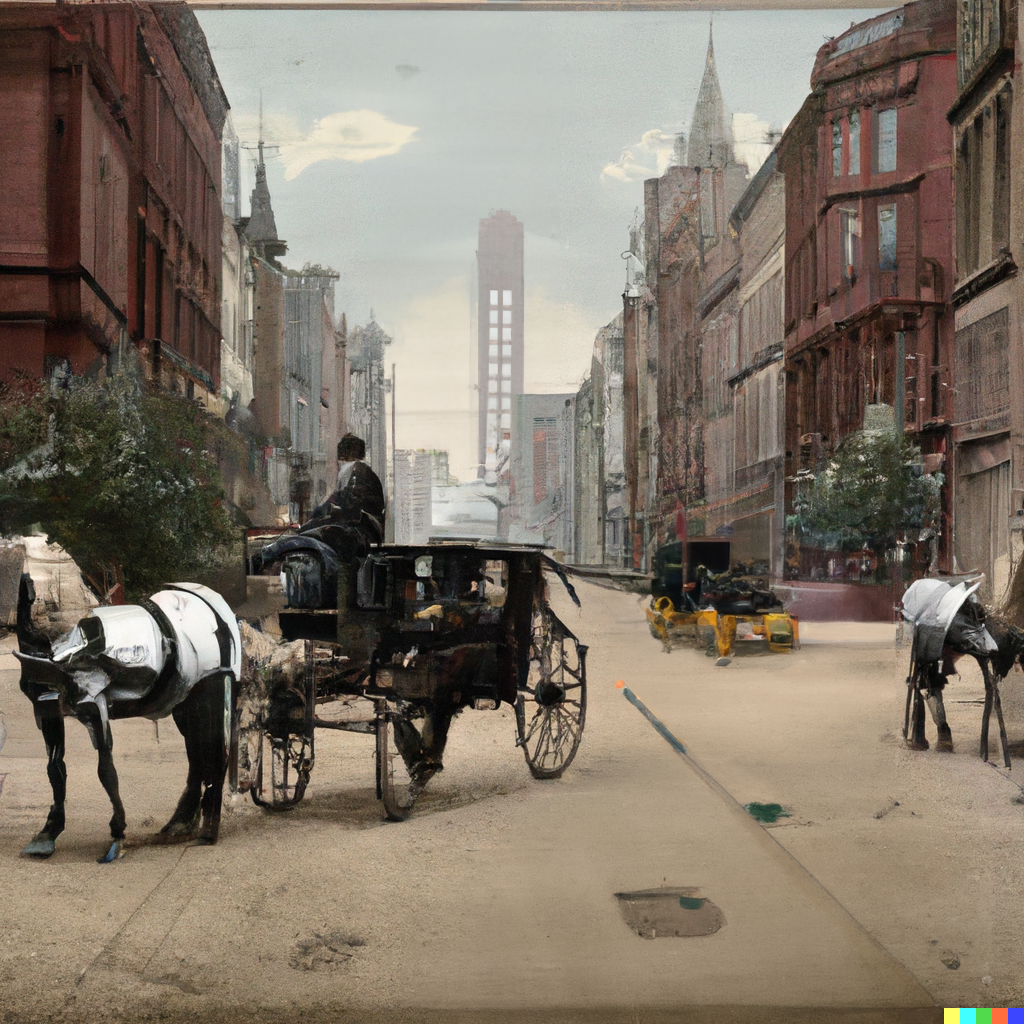Change is an intrinsic part of the human narrative. From the shifting sands of time to the evolving landscapes of our societies, we’ve always been in a dance with change. But while change is constant, the pace at which it occurs can vary, and therein lies the challenge.
In our daily lives, we witness the gradual transition of day to night, adapting to the changing temperatures with little thought. This predictable rhythm, akin to the sun’s unwavering trajectory across the sky, is manageable because of its consistency. But what happens when the pace quickens, when change becomes not just a factor, but a force to reckon with?
In our book, Catalyst, Bret Boyd and I delve deep into the nature of change and its implications. Disruptive change isn’t just about a shift in the status quo; it’s about the acceleration of that shift. It’s the difference between a river’s steady flow and the tumultuous rush of rapids.
In podcast discussion with Russ Roberts, Walter Russell Mead ties his work in public policy together with the rapid change in technology. Overall, he explains its impact today through exploration into American policy traditions and offers valuable insights. While his analysis primarily revolves around foreign policy, the implications of these policies on the business landscape are profound. From the Hamiltonian emphasis on strong federal governance and its implications for commerce to the Jeffersonian caution against foreign entanglements that might jeopardize American economic interests, Mead’s work underscores the intricate interplay between policy and commerce. In the podcast discussion, he highlights that technology makes it very hard today to distinguish between domestic and foreign policy. This is a particularly important concept relating to business when we start to think about domestic vs international industrial policy and taxation.
The challenges of adapting to accelerating change are not novel concepts. Over a century ago, Henry Adams, through his “Law of Acceleration” or the “Adams Curve,” astutely observed the exponential growth in technological advancements. His reflections captured the essence of a world in rapid transformation, a sentiment that resonates even today.

Yet, understanding the nature and pace of change is only one side of the coin. Rosabeth Moss Kanter, in her research and writing, emphasizes the dynamics of success and failure in business. She posits that adaptability and resilience are not just inherent traits but can be cultivated. Kanter’s research suggests that organizations that foster a culture of continuous learning, innovation, and open communication are better equipped to navigate change. On the flip side, companies that resist change, cling to outdated models, or fail to empower their employees often find themselves left behind.
Knowing that change is accelerating is one thing; it’s quite another to have the leadership and strategy in place to navigate it. As the co-founder of the Grayline Group, I’ve seen firsthand the importance of adaptability in the face of disruption. It’s not just about acknowledging the change; it’s about equipping oneself with the tools, strategies, and mindset to turn potential challenges into opportunities.
As we stand on the precipice of an era marked by unprecedented technological and societal shifts, the lessons from Mead, Kanter, and Adams resonate more than ever. Change might be inevitable, but with the right leadership and strategy, so is our ability to adapt and thrive.
Joseph Kopser is a lifelong problem solver committed to building the teams needed to take on our toughest challenges. He is currently President of Grayline after he co-founded and served as CEO of RideScout, before it was acquired by Mercedes. He is also a liaison for military & veteran affairs at the University of Texas. He served in the U.S. Army for 20 years earning the Combat Action Badge, Army Ranger Tab and Bronze Star. He is a graduate of West Point with a BS in Aerospace Engineering and also received a Masters from the Harvard Kennedy School and former member of the Army Science Board. He was recognized as a White House Champion of Change for his efforts in Energy and Transportation as well as won the U.S. DOT Data Innovation Award. He co-authored the book, Catalyst, a book focused on helping teams adapt to change. He is the Chair of the Board of Advisors for the CleanTX, an economic development and professional association for cleantech.
Join the Catalyst Monitor
Join our community, where we push out regular insights to help maintain situational awareness on technological and socioeconomic trends.



